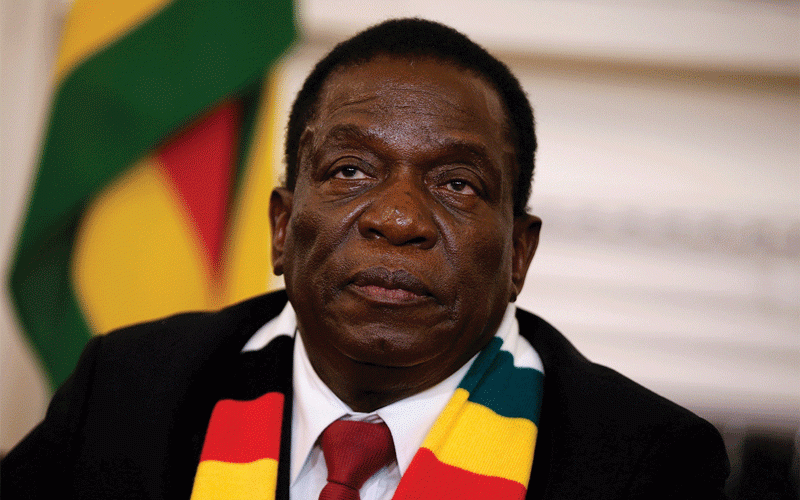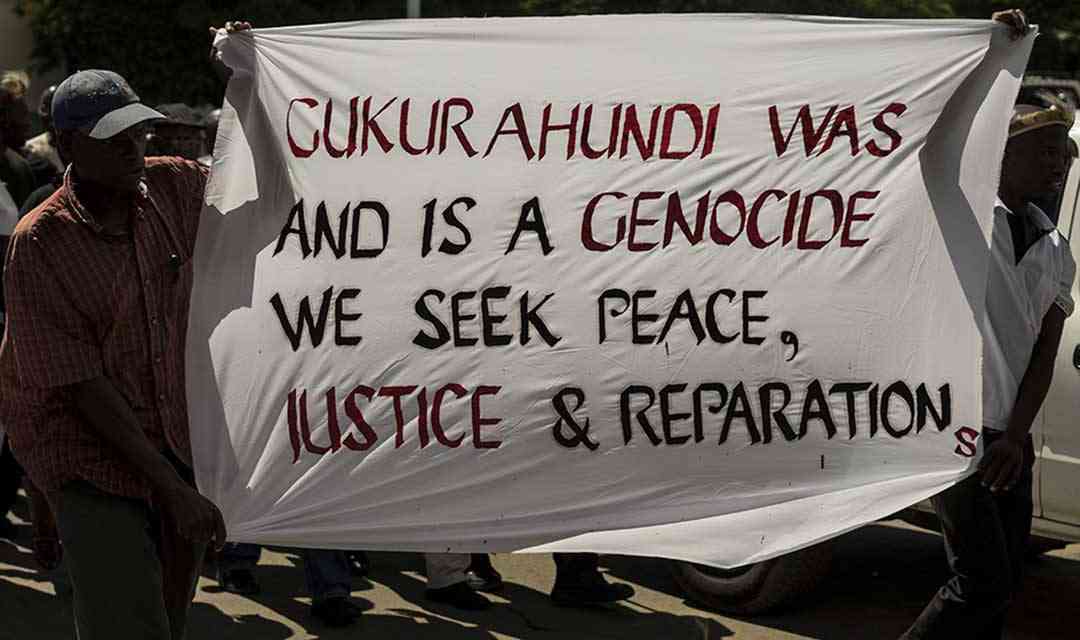
PRESIDENT Emmerson Mnangagwa has responded to concerns about the perilous plan to extend his term by two years to 2030 by simply making double-meaning statements proclaiming to be a “constitutionalist”.
He has at some point made more clearer remarks to the effect that after 2028 he will rest and someone else will take over. Yet that has not resolved the problem because his party and ministers still chant the "Agenda 2030" slogan and are even working on formal processes towards amending the Constitution.
Our Constitution sets only two 5-year terms for the president. The term of a president is tied to the term of Parliament, which is 5 years. What’s more the timing of elections is designed to coincide for the presidential, parliamentary and local government elections — the so-called harmonised general elections.
There is more: the framers knew leaders would want to overstay, so they inserted a clause — section 328(7) which says any change in the term of an incumbent office holder does not benefit the incumbent. The framers were, indeed, wise; they knew further that someone may yet devise a scheme and want to amend section 328(7). So, they entrenched the clause, meaning it requires a special procedure to be amended. Only 3 parts of the Zimbabwean Constitution are entrenched: Chapter 4 (Declaration of Rights), Chapter 16 (Agricultural Land) and section 328(7) require a two-thirds majority in Parliament and a referendum to be amended. Everything else can be amended without a referendum.
Now, the clauses that set the presidential term limit to two 5-year terms do not require a referendum. These are sections 91(Qualifications for Election as President), section 92 (Election of President), section 143(1) (Duration and Dissolution of Parliament), and section 158 (Timing of Elections). Mnangagwa has choices to either permanently amend these or simply suspend their operation for whatever period he wants to extend his term.
He may also choose to de-couple the election of president from Parliament and local governments or simply have the MPs and councillors also benefit from the term extension. He is likely to do the latter as an incentive for broader support for his agenda. These are not entrenched provisions. All they require is a two-thirds majority in Parliament.
However, the problem will be section 328(7) which requires a referendum.
Mnangagwa has a choice: to produce two separate amendment Bills and get the “general” Bill to sail through Parliament, and then the “special” one on section 328(7) to go through a referendum. Alternatively, he may produce one amendment Bill and subject the entire bill to a referendum simply because it contains clauses amending an entrenched clause.
- Mbavara eyes to resurrect Matavire’s music legacy
- Zim exiles panic over SA permits
- Zim exiles panic over SA permits
- Social media platforms should act on hate speech
Keep Reading
A two-thirds majority in Parliament means a two-thirds majority in both houses: the National Assembly and the Senate.
Zanu PF has a two-thirds majority in the National Assembly, thanks to the illegal recalls of CCC MPs engineered through self-proclaimed opposition leader Sengezo Tshabangu and endorsed by our Judiciary. In the Senate, Zanu PF does not have a two-thirds majority, but it is the least of Mnangagwa’s problems, for Tshabangu stands ready to lend his senators, having already publicly endorsed Agenda 2030. Even if Tshabangu by some miracle does not lend his senators to support Mnangagwa’s bid, our MPs and senators have a long history and record of loving trinkets and being available to the highest bidder.
As I have written before in this column, there is another route, even more dubious: Zanu PF may avoid amending section 328(7) and not even go to a referendum but to the Constitutional Court and get a judgment in the same terms as they did in the 2021 Mupungu v Minister of Justice, Legal and Parliamentary Affairs and others judgment, wherein Chief Justice Luke Malaba’s extended time in office was sustained, thanks to legal gymnastics in statutory interpretation.
The court decided that amendments to section 186 of the Constitution on tenure of judges “taken in their totality, do not operate to amend any term-limit provision as contemplated by 328”.
Yet the Chief Justice is today on the bench, beyond what section 186 prior to the amendments allowed. The people who want to amend the Constitution are not democrats and are willing to bend all manner of rules and procedures. The same reason proffered in Mupungu can be used to support Agenda 2030.
So legally and politically, Agenda 2030 is possible to pull off. The only wild card is a Zanu PF faction opposed to the Agenda 2030 using its MPs and senators to successfully block such a vote and this is highly unlikely, but possible. A referendum is also a risk, but with the Zimbabwe Electoral Commission in charge, Mnangagwa is emboldened.
The thing about constitutionalism is that it is not about pronouncements; rather, what is in fact done in practice. Neither does constitutionalism mean or equate to a Constitution. The Constitution is just a statement of intent, an aspiration. Constitutionalism is the culture of abiding by both the normative framework of the written constitution and the unwritten conventions that surround how we approach our Constitution and how we treat it.
Modern day autocrats rule by law and hide behind the smokescreen of legalities. Constitutional scholars have described part of it: it is called abusive constitutionalism, when one uses the very instruments of constitutional change — including amendments, to pass formal amendments which in effect have the result of undermining that very constitution and its fabric. This is what Agenda 2030 does. There is nothing to justify the term extension so much, outside laughable claims that Mnangagwa needs more time to complete his developmental agenda which apparently is bearing much fruit.
For instance, our Constitution has a fundamental fabric, its basic structure. It has founding values. Among those are separation of powers and supremacy of the Constitution. Changing the Constitution for no legitimate reason other than wanting to stay in power for two more years is not constitutionalism.
Legally, it is no easy path to achieve Agenda 2030, but as Zimbabweans now know too well, legalities are not impediments to naked power retention and extension.
At the end of the day, it is up to Zimbabweans to mete out the punishment they desire to leaders who break the rules of the game and mutilate the country’s social contract. Whatever Zimbabweans decide to do, be it through the vehicle of formal political opposition, civil society or social movements, they need to work towards restoring agency and political power to the people.
Yet for now, both opposition and civil society are in no shape to coherently and meaningfully fight back constitutional mutilation and it seemingly remains for the internal ruling party factions in the party-military-State arrangement to defeat the agenda.
Musa Kika is a Zimbabwe human rights and constitutional lawyer and jurist










